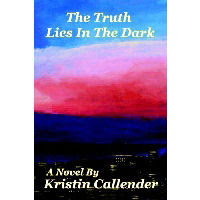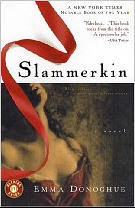
Is there a particular era that you love reading about? Tell us about it - give us a book list, if you’d like. Include pictures or some fun facts from that time period, maybe link to a website that focuses on that time. Educate us.
I
love history and historical fiction - it it’s set any time before WWI, I’ll read it. As much as I enjoy reading about times and places with which I’m not familiar, I also love anything about:
Ancient Rome: My fascination with the Romans began with a history book my parents inherited from my grandmother. We got a whole bunch of Time/Life books about various civilisations and eras, and I used to browse through them at random (when not reading dictionaries or encyclopaedias). I find them endlessly interesting, not only for the heights of civilisation they reached so long ago, but for the scale of the collapse which followed.
Links:
A directory of links to information about Ancient Rome
An Illustrated History of the Roman Empire from the early republic onwards
Book list:
The Falco series by Lindsay Davis
I, Claudius and Claudius the God by Robert Graves (note, though, that his depiction of Livia Drusilla as a murderous bitch who offed half the family is not supported by history)
Imperium and Pompeii by Robert Harris
The Libertus series by Rosemary Rowe
The Wars of the Roses: High school English turned out to be good for something after all. In Year 10 we did Richard III, Shakespeare’s tale of a king as hideous inside as out. Shortly thereafter, I read somewhere that, far from being a hunchbacked monster, Richard was actually accounted good-looking. With that one inconsistency began an abiding interest in the last of the Yorkist kings and the way in which he has been portrayed by history. My addiction to things fifteenth-century was slow to develop but I am now hooked and always on the look-out for more books.
Links:
An overview of the people and battles of The Wars of the Roses
The Richard III Foundation - the opposite perspective to Shakespeare’s
Book list:
The Sunne in Splendour by Sharon Penman
The Goldsmith’s Wife by Jean Plaidy
Katherine by Anya Seton (actually set in the period immediately before the Wars began)
Henry IV parts 1 and 2 and Henry V by William Shakespeare (who, writing in the time of Elizabeth I, naturally had a pro-Tudor bias)
The Daughter of Time by Josephine Tey (not, strictly speaking, historical)
Georgian Britain: Last year saw my NaNoWriMo debut with a novel that had been percolating in my brain for several years. It began when I decided to - as a fun challenge - write a mystery novel. Making it historical was a good excuse to read lots on one of my favourite subjects, and I picked the eighteenth century simply because I wanted a period not done to death (like Victorian or mediaeval) and that was the first one that came to mind. In the time it took to cook up the eventual (and vastly more complicated than planned) plot, I fell in love with everything Georgian.
Links:
Links to Eighteenth Century Resources on every topic imaginable
The Georgian Index - a directory of information about Georgian and Regency England
Online versions of contemporary writings at Eigtheenth-Century Studies
Book list:
Slammerkin by Emma Donoghue
The Outlander and Lord John series by Diana Gabaldon
These Old Shades and Devil’s Cub by Georgette Heyer
A Conspiracy of Paper by David Liss
Do you have a favorite book that really pulled you back in time, or perhaps gave you a special interest in that period? Include a link to a review of it on another book blog if you can find one (doesn’t have to be a Weekly Geek participant).
For how I acquired my special interests, see above. For reviews of absolute favourites, see:
Ancient Rome: I, Claudius by Robert Graves
10Thirty
Resolute Reader
The Wars of the Roses:
The Sunne in Splendour by Sharon Penman
Christine’s Reading Corner
Devourer of Books
Georgian Britain:
A Conspiracy of Paper by David Liss
Paper Frigate
Prettier Than Napoleon
A member of your book group, Ashley, mentions that she almost never reads Historical Fiction because it can be so boring. It’s your turn to pick the book for next month and you feel it’s your duty to prove her wrong. What book do you pick?
This is a hard question for me to answer. I’ve read a number of novels by Henry James - voluntarily - so I have a high tolerance for what many others would consider stultifying dullness. Ergo, I’m not much of a judge of what other people may or may not find boring. And realistically, I’d tailor my choice according to what Ashley usually liked to read and try to choose something that would appeal as much as possible to the other members of the group.
Choosing blind like this, I will - after much deliberation - settle on A Conspiracy of Paper by David Liss. Plenty of twists and turns, and plenty of fodder for discussion.



































